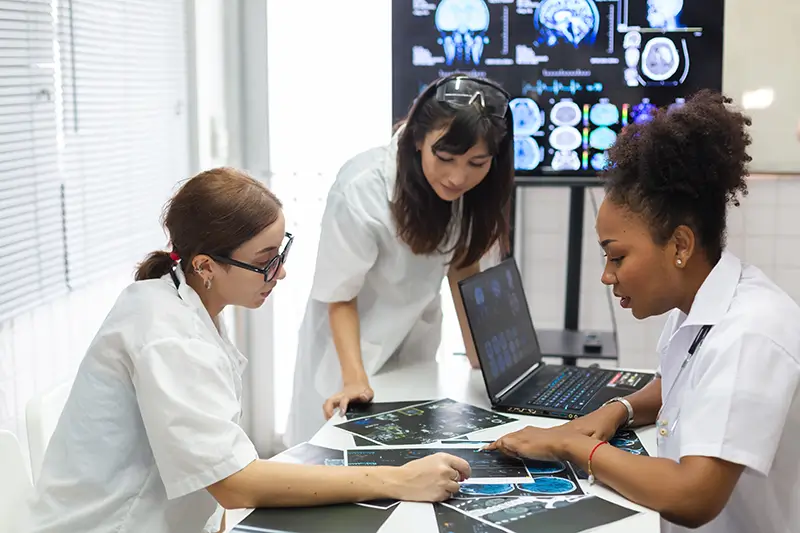Artificial Intelligence can play a role in medical coding by reducing human coding errors, increasing efficiency, ensuring on-time claim submission and processing, and thus accelerating the revenue cycle. AI tools can also process a large amount of data quickly, making coding faster and lowering the risk of mistakes by humans. AI-powered medical coding services integrate with your existing medical billing process, reducing the need for manual input and making the coding process faster and more accurate.
Using intelligent AI solutions, medical coders can efficiently perform their tasks, and focus on maintaining high-quality standards. Embracing this technology enables medical coders to acquire new skills and stay up-to-date on evolving trends within the industry.
However, there is concern in the industry that AI could potentially completely replace such skilled coders.

Can AI Deal with Complex Medical Records Like Humans Do?
Can AI do everything a skilled medical coder does?
” No” , says a recent AAPC article. The article explains that ” a variety of data forms, such as handwritten notes, patient intake information, and narrated lab reports, are contained within electronic health records (EHRs), and this lack of uniformity is problematic for AI systems.”
Despite their advanced algorithms, AI tools may struggle with the complexity of medical records. Medical records may come with typos, odd abbreviations, and doctor language specific to each department. Even trickier, some medical notes describe a patient’s condition in a way that requires human judgment to understand. For now, AI just isn’t there yet in deciphering this complexity.
Skilled medical coders and billers, proficient in medical coding and well-versed in healthcare regulations, remain crucial. Their expertise is vital for ensuring compliance with local and national coverage determinations, identifying claim processing errors, and initiating necessary appeals.
Just like human coders, automated systems must comply with strict data protection requirements to prevent data breaches and uphold the confidentiality and integrity of Protected Health Information (PHI). Continuous supervision by compliance officers and information technology professionals will be necessary to ensure compliance. With these concerns in mind, AI will only supplement and support human coders instead of replacing them altogether.
Manual Medical Coding Vs. AI-powered Medical Coding
Traditional medical coding relies on human expertise, while AI-powered coding uses advanced algorithms to automate the process. Here’s a breakdown of both:
Manual Medical Coding
| Pros: | Cons: |
|---|---|
|
|
|
|
|
AI-powered Medical Coding
| Pros: | Cons: |
|---|---|
|
|
|
|
|
|
Hope you’ve noticed the highlighted point, explaining that AI may struggle with complex cases or unclear documentation requiring human expertise.
The Future of Medical Coding – AI Hand-in-Hand with Human Intelligence
The future of medical coding looks exciting as artificial intelligence and human intelligence team up. Most experts see AI-powered coding as the future, but not as a complete replacement for human coders. The ideal scenario involves a collaborative approach where AI tackles routine tasks, freeing up human coders to focus on complex cases and oversee the overall accuracy.
AI can quickly handle large amounts of data and spot patterns, while humans bring in their understanding of real-life situations and complex medical cases. This teamwork speeds up coding, makes it more accurate, and ensures it follows all the rules. As AI gets even smarter, the future of medical coding seems bright, promising better-quality healthcare records through a perfect mix of technology and human expertise. Practices considering medical coding outsourcing can consider partnering with a medical coding company that provides AI-integrated services.






